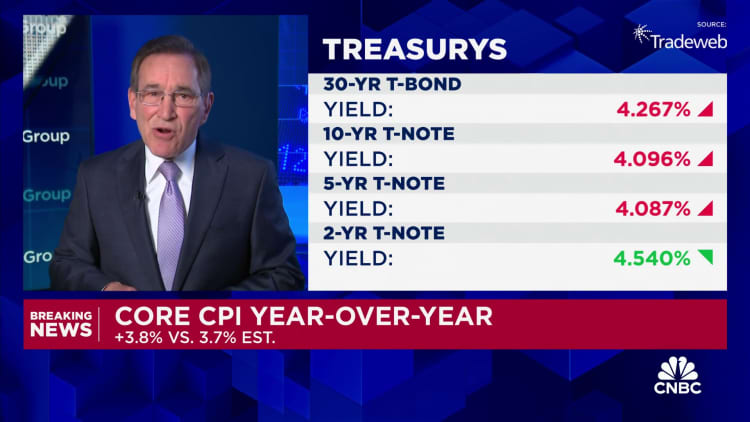
By Thor Olof Philogène, CEO and Co-Founder at Stravito
Since Generative AI hit the mainstream in early 2023, F&B companies have grappled with how, if at all, to implement the tool into their business models. They’re not alone – over 70% of all global businesses were making the same assessment – but answers for successful implementation varied.
It’s important to remember that the standard Generative AI tools, such as ChatGPT, were never meant to be one size fits all. Given the F&B industry’s heavy reliance on consumer insights, data, and large-scale knowledge management, all F&B brands could benefit from a generative AI solution that’s specifically tailored to those needs.
1. What are some key ways you’ve seen F&B organizations leverage generative AI so far?
Many, if not all, companies are exploring generative AI, but we’re seeing that many of them are taking a cautious approach. Rather than diving into full-scale production right away, they start with small pilot projects involving generative AI. Another notable trend we’re seeing is the formation of dedicated generative AI committees within companies. These committees have a horizontal scope and work to coordinate generative AI initiatives across different parts of the organization. They not only carefully evaluate the potential benefits and risks of generative AI but also establish security and privacy standards for vendors. With the rapid evolution in this field, we also see that there’s a growing emphasis among companies on selecting long-term partners, rather than just vendors, as they recognize the importance of having a trusted companion on this exciting yet challenging journey.
2. Where do you see the greatest potential for generative AI in the industry? How can executives implement generative AI tools to ensure the most benefits?
The greatest potential of incorporating generative AI into the F&B industry centers around the enhanced efficiency, productivity, and creativity for users by removing a large part of the manual work, and making it easier for users to discover new information through a simplified, conversational interface made possible by generative AI technologies.
Ultimately, the ability to access data and insights more easily and quickly results in a more customer-centric organization, more informed decision-making, better product innovation, and thus more opportunities, and increased revenue and profitability.
Overall, consider that generative AI is still in its early stages of development, which is why executives need to make thoughtful research and education. F&B companies need to identify real-life pain points that generative AI tools can effectively address. Implementing generative AI simply for the sake of using the technology without a clear purpose may lead to inefficient resource allocation and limited return on investment.
3. What challenges have F&B companies faced in deciding whether and how to implement generative AI into their business models?
Implementing generative AI solutions provides companies with incredible power and speed to parse large volumes of data, delivering a great productivity boost, and promoting exploration and inspiration through a seamless interface. However, the challenges of incorporating generative AI into systems are multi-dimensional: Enterprises need to make sure they only work with trusted vendors for their AI solutions, and that the data that they use in AI-enabled systems is handled in a secure and compliant manner. Of course, there is also the risk of hallucinations from some generative AI tools, which have received much media attention over the past year. For F&B companies who are reliant on market and consumer research to make business decisions, it’s pivotal that any tool they implement only uses vetted data to generate AI-enabled answers – unlike open AI apps that pull from the public domain. Furthermore, I would stress that you, when it comes time to integrate, ensure that the generative AI tool is complemented by a human-run service layer. Implementing generative AI necessitates a human component to ensure its effectiveness.
4. How does a generative AI solution tailored to the food and beverage industry specifically cater to the needs of brands in analyzing and responding to consumer preferences?
Generative AI can supercharge the technologies that are already delivering a positive impact on the F&B industry in a variety of ways. From a consumer preference perspective, democratized access within the organization is crucial and that can be catalyzed by a generative AI tool. Generative AI reduces the time spent on manually researching and analyzing important information and responding to consumer preferences, opening up operational bandwidth to be spent on implementation and action, which is important for F&B brands looking to stay on top of trends and close to their consumers.
5. Can you share instances or outcomes that highlight the unique value created for F&B brands through the use of tailored generative AI?
We evaluate the success of generative AI implementations from two primary angles: efficiency gains and value creation. Efficiency gains are quantified by the time saved in searching for and analyzing information, as generative AI significantly accelerates these processes. As an example, groundwork that would have required hours can be done in minutes now. Additionally, enhanced discoverability helps companies avoid redundant efforts and conserve budgets by leveraging existing research rather than starting from scratch. However, the true significance of generative AI lies in its capacity to deliver benefits beyond mere time and cost savings. For instance, in the realm of research, the ability to ask the right questions is paramount. While researchers naturally hone this skill over time, generative AI can further refine it for business stakeholders. By generating better questions and challenging biases and assumptions, generative AI fosters behavioral changes and encourages a more thoughtful approach.
6. In what ways does a customized generative AI solution contribute to increased efficiency in data processing and decision-making within F&B companies?
A tailored generative AI tool can help to drastically reduce the time spent on internal manual tasks like research and analysis of proprietary information. The ability to access data and insights more easily and quickly results in a more customer-centric organization, more informed decision-making, better product innovation, and thus more opportunities, and increased revenue and profitability.
7. Are there any emerging trends or developments in AI that you believe will further impact how F&B brands leverage generative technologies? Impact how they will be able to assess and respond to consumer insights?
Generative AI remains in its early stages of development, which is why executives should approach the tool with thoughtful research and take time to educate themselves and their teams. But development in this area is happening at lightning speed, and what’s not possible with generative AI today may very well be just a few months from now. With their heavy reliance on qualitative data, the F&B industry is in a unique position to accelerate consumer-centricity and impactful decision making organization-wide with the increased insight that new generative AI solutions can provide. Still, implementing AI simply for the sake of using the technology, without a clear purpose, may lead to inefficient resource allocation and limited return on investment. That said, it is our strong belief that generative AI will eventually become a fully integrated aspect of the tech stack for the food and beverage industry, enabling brands to be the most efficient and capable versions of themselves.
 Thor Olof Philogène is CEO and Founder of Stravito, an AI-powered enterprise insights platform that allows employees at Fortune 2000 organizations to store, discover, share, and integrate consumer insights, in seconds. Today the business counts world-leading brands such as McDonalds, Comcast, Electrolux, and Danone as customers.
Thor Olof Philogène is CEO and Founder of Stravito, an AI-powered enterprise insights platform that allows employees at Fortune 2000 organizations to store, discover, share, and integrate consumer insights, in seconds. Today the business counts world-leading brands such as McDonalds, Comcast, Electrolux, and Danone as customers.

Credit: Source link



![[Guide] 5 Reasons Your Business Does or Doesn’t need an ESOP [Guide] 5 Reasons Your Business Does or Doesn’t need an ESOP](https://foodindustryexecutive.com/wp-content/uploads/2024/08/Food-Industry-Executive-696x457.png)










